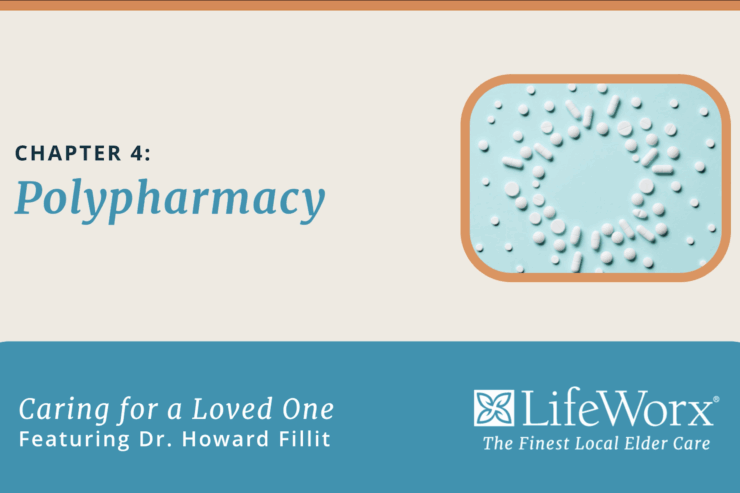
How to Simplify Medication Management for Seniors
For seniors, medication management is critical for maintaining their health, managing chronic conditions, and preventing complications. However, managing multiple prescriptions, dosage schedules, and potential interactions can be overwhelming, especially for individuals with memory issues or those adjusting to new medications.
At LifeWorx, our caregivers understand the importance of medication management and the risks associated with missed doses, incorrect usage, and medication interactions. Our nursing team can collaborate closely with clients and their families, conducting thorough medication reviews, organizing prescriptions, and implementing systems to ensure consistency and safety.
Common challenges in elderly medication management
Older adults often face several common medication-related obstacles that can impact their health:
- Dosing errors – incorrect amounts that can lead to adverse effects.
- Missed doses – forgetting medications can disrupt treatment plans.
- Wrong medication – confusion may result in taking the wrong prescription.
- Wrong administration time – taking medications outside of the schedule can reduce effectiveness.
- Polypharmacy concerns – multiple prescriptions may lead to unsafe drug interactions.
Strategies for effective medication management at home
While professional caregivers provide invaluable support, families can still take key steps to improve medication adherence at home.
Stay organized
A well-maintained medication list is crucial for safety and accuracy. Be sure to include:
- Prescriptions (both long-term and short-term medications)
- Over-the-counter medications
- Herbal remedies and vitamins
- Non-pill medications like patches, inhalers, creams, and ointments
Beyond keeping a physical record, it’s important to discuss what each medication is for, when it should be taken, and the correct dosage to prevent mistakes.
Additionally, you should ensure that medications on the list match those stored at home and periodically check expiration dates and safely discard any unused or expired medications.
Safety and storage
Proper storage helps maintain the effectiveness of medications. Consider:
- Using medication planners to keep track of doses and avoid missed medications.
- Speak to your pharmacy about medication management services, such as:
- Unit dose packaging (pre-packaged medication for easier identification)
- Medication synchronization (refills for all prescriptions picked up at the same time).
Avoid polypharmacy and misuse of medications
Polypharmacy (the concurrent use of multiple medications) can lead to unexpected side effects or dangerous drug interactions. A prescription review with a doctor at least once a year can reduce patients’ use of prescriptions they no longer need and can help them avoid unnecessary side effects and interactions.
To avoid adverse reactions to medications, doctors can:
- Introduce medications one at a time
- Start new medications at the lowest dose possible
- Increase dosages slowly and monitor reactions
- Terminate medications if there are negative reactions or when the drug is no longer needed
Use tools to stay on track
Leverage technology and organizational tools to simplify medication management:
- Set reminders using alarms, apps, or caregiving prompts
- Arrange pill organizers for easy access
- Keep medications in a storage area to avoid confusion
Managing medications can be a challenging task, but with the right support and strategies in place, seniors and their families can create a safer and more effective medication regimen. Our experienced caregivers are also here to assist with medication organization and adherence, working alongside families to prioritize safety and consistency. Contact our team to learn more about our services.



















